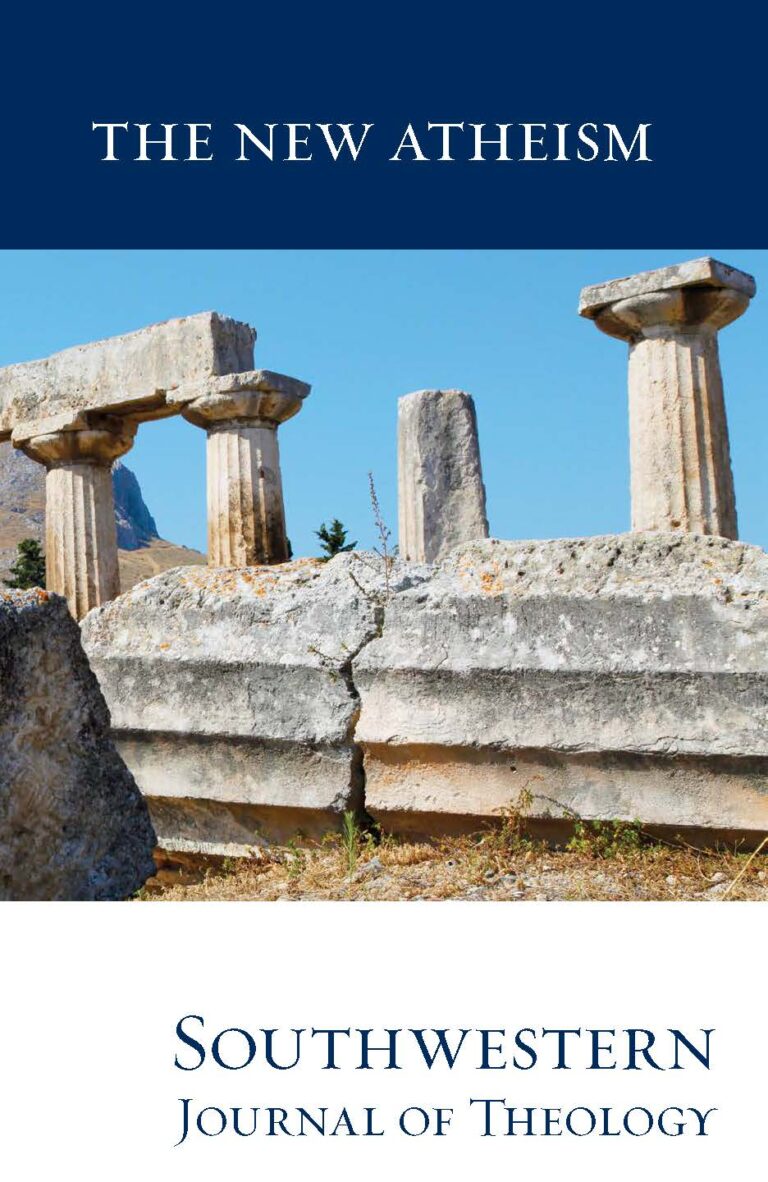
The New Atheism
Southwestern Journal of Theology
Volume 54, No. 1 – Fall 2011
Managing Editor: Malcolm B. Yarnell III
By Merold Westphal. Grand Rapids: Baker Academic, 2009. 160 pages. Softcover, $19.99.
Postmodernism poses, well, a poser for the Church. On the one hand, postmodern critiques of modernity have revealed that the emperor in fact has no clothes, that an imperialistic human reason guided by a scientific methodology cannot deliver what it has promised. Reason and method alone cannot deliver to us an unquestioned objectivity which systematically delivers all knowledge and truth. Postmodernism has reminded us that we are not God. On the other hand, after destroying the obelisks of modern epistemology, postmodernism has threatened to leave nothing but ruins in their place. Faith in human reason is replaced with despair. Everything is called into question, including our ability to communicate through speaking and writing, our access to knowledge of any sort, and the very existence of truth. Of particular concern to the church is the threat posed to the authority of Scripture. If texts cannot communicate meaning, if we have no access to truth, then the Word of God cannot be the Word of God for the church. In his brief but incisive Whose Community? Which Interpretation?, Merold Westphal seeks to sail biblical hermeneutics through the Scylla of deified reason and the Charybdis of postmodern relativism.
Westphal’s main concern is to apply the hermeneutical insights of HansGeorg Gadamer’s Truth and Method to the church’s reading of Scripture in such a way that Christians will recognize the influence of their tradition and community on their hermeneutic, but will not be left with an “anything goes” view of biblical interpretation. The first five chapters provide preparation for this task by placing Gadamer’s work in both historical and contemporary context. Chapters six through nine familiarize the reader with Gadamer’s theory, and the final three chapters explore the implications of that theory for biblical interpretation within the context of the church. This last point cannot be overemphasized, for Westphal recognizes the unique character of Scripture as the Word of God, which means that interpreting it is different from interpreting any other text. For example, Westphal notes that one cannot rightly interpret Scripture within the context of the church without taking into account “the witness of the Holy Spirit, not only in attesting to the Bible as divine revelation but also in teaching us what it means” (14).
While Whose Community? deals with complicated philosophical issues, it is not overly technical and should be accessible to the average reader. This accessibility is by design, as Westphal notes that all Christians are theologians who read and interpret Scripture, whether they do it in an academic, pastoral, or lay setting. Whether the Christian is writing academically, proclaiming the Word from the pulpit, or reading devotionally, he is involved in biblical interpretation. And because Christians live together in community, the ways in which individual Christians interpret Scripture are also the ways in which the church interprets Scripture. So Westphal rightly addresses his work to the individual Christians who make up the church, and keeps this individual/ecclesiastical dynamic in mind throughout.
Even if one finds oneself disagreeing with Westphal’s conclusions, Whose Community? is worth the short read for the first nine chapters alone. After arguing for the necessity of interpretation in chapter one, Westphal provides a clear and concise summary of nineteenth- and twentieth-century hermeneutics, focusing on Schleirmacher and Dilthey, and then Heidegger, Gadamer, and Ricoeur. In doing so, Westphal argues against the “romantic” hermeneutic of the nineteenth century, characterized by psychologism (which views texts as insights into the minds of their authors as opposed to vehicles of communication about certain subjects) and objectivism (which takes a view of interpretation akin to the natural sciences, and thus intends to produce a single reading with universal validity). But he also rejects a thoroughly relativistic twentieth-century postmodern hermeneutic according in which no limit is imposed upon legitimate interpretations. Against both of these extreme views Westphal places Gadamer, whose hermeneutic he thinks can assist in the rehabilitation of tradition.
In the final chapters, Westphal seeks to apply Gadamerian hermeneutics for the benefit of the church by developing a model based on political liberalism (read here classical liberalism, not liberal as opposed to conservative), characterized by the notions of individual rights and limited government, and communitarianism, which provides an account of the good and a comprehensive list of virtues embedded in specific communities and their traditions. From liberalism one receives the concept of an overlapping consensus, while from communitarianism one gets values and practices within the context of a particular community. For, say, a Southern Baptist, the liberalism aspect of the model will provide what one might call the essentials of Christian faith, while the communitarian aspect will provide Baptist identity. Of course, the problem (which Westphal does not address directly) is in specifying where the lines between the liberal and communitarian goals are to be drawn. But Westphal is optimistic that if the church adopts some general virtues (primarily humility, listening, and friendship) such problems can be resolved. Whatever one thinks of the potential for success in these matters, Westphal’s book is a helpful read for any Christian interested in the essential practice of biblical interpretation.





